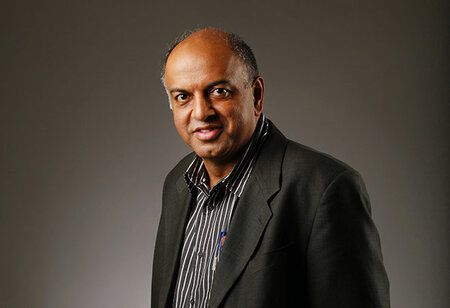Info Edge, Sanjeev Bikhchandani's Fundamental Advice for Startup Founders
By Consultants Review Team
 According to Sanjeev Bikhchandani, the founder of Info Edge, companies should consider going public only if they have already turned a profit or are certain they will within a few years after listing on the stock market.
According to Sanjeev Bikhchandani, the founder of Info Edge, companies should consider going public only if they have already turned a profit or are certain they will within a few years after listing on the stock market.
Bikhchandani stated that companies should assess if they have internal systems and procedures in place to handle the constraints that come with being a publicly listed firm during an interview with Cred founder Kunal Shah on his podcast.
The founder of Naukri.com, Bikhchandani, was asked by Shah when he would recommend a startup to go public. He said, "When either you're profitable or you know for sure that you'll be profitable in the next couple of years." When your internal systems, procedures, and personnel are capable of managing a public corporation, I would advise going public."
He emphasized that as soon as a firm goes public, authorities take on a more active role in the company's oversight.
"When public funds are involved, oversight is different. It's your company in the beginning. The sole shareholder is you. Individuals are less concerned. Next, you raise, say, venture capital funds. Now that you have all those things, you also have a board, MIS, oversight, business strategy, and shareholder agreements. It's not public money, though, and you still answer only to two or three people. The government's and Sebi's role when going public is to protect the public interest. The way that reporting supervision compliance is done varies," he stated.
Bikhchandani talked about his 2006 listing experience for Info Edge. "There are now stakeholders and potential stakeholders who don't have perfect alignment of interest," was the question raised when we went public. It is advantageous for present shareholders, particularly those who are departing the IPO, if I price the IPO extremely high. However, you will have damaged both your reputation and the incoming shareholders if I price the IPO there and the price collapses after the IPO. It is therefore difficult to handle this trade-off, and in the end, judgment is required. You will constantly be pricing too high or too low, so you'll never get it quite right."
He continued by saying that he advises business entrepreneurs to be cautious while setting the IPO price. "I've always advised against setting an aggressive IPO price. You know, especially in India where there is still a socialist heart, if the little person (i.e., retail investors) suffers, it's terrible karma. Yes, we have a socialist tradition in addition to a capitalist one. India has historically been a capitalist nation with a sizable capitalist population, but the country's core is socialist. He remarked, "You can't be doing harm to the little guy."
Bikhchandani's Info Edge is a significant stakeholder in PolicyBazaar and 99 Acres, and it was an early sponsor of other Indian firms, including Zomato.







